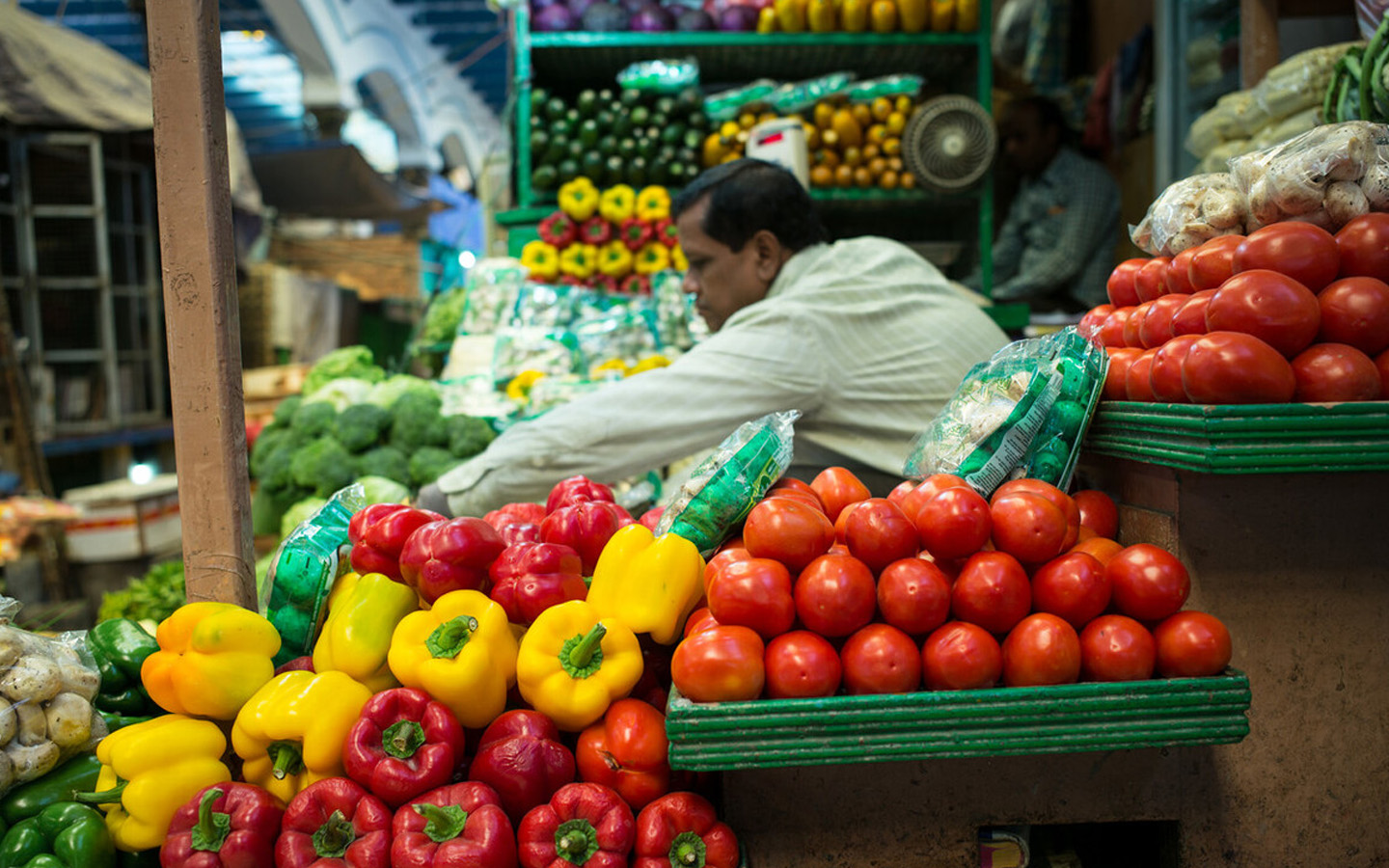Taking Agriculture into the Future
Small farmers in Maharashtra, India, will soon get more for their labor. An ADB project, composed of a loan and complementary technical assistance funded by Japan, is helping farmers’ groups link to markets and agricultural value chains, bringing Maharashtra’s agriculture sector into the future.
Small farmers in Maharashtra, India, will soon get more for their labor. An ADB project, composed of a loan and complementary technical assistance funded by Japan, is helping farmers’ groups link to markets and agricultural value chains, bringing Maharashtra’s agriculture sector into the future.
Farming in Maharashtra
There are 12 million or so small and marginal farmers in Maharashtra, India, and many earn insufficient income. Most of these small-holding farmers still practice subsistence farming. They do not grow crops in large volumes to sell in the market and make little use of agricultural technologies.
With encouragement from the central and state government, Maharashtra farmers have organized themselves into farmer producer organizations (FPOs). Some FPOs started to establish networks actively involved in agribusiness development. FPOs work closely with value chain operators (VCOs)—those that run postharvest and agriculture value chain activities. FPOs and VCOs not only lack capital and expertise for larger and efficient operations; they also have no direct access to bigger markets and rely on old trading systems and marketing channels.
The Maharashtra state government encourages farmers to grow horticulture crops—fruits, vegetables, and flowers—for high value and with potential for export. Maharashtra has become one of India’s largest producers and exporters of horticulture products, producing 25.9 million tons of fruits and vegetables in 2020, of which only 0.2 million tons worth $169 million were exported. The state is also among the leading producers of flowers such as roses, gerberas, carnations, and marigolds, accounting for 8% of India’s total floriculture exports.
Horticulture crops are highly perishable and almost 40% are lost or wasted at different stages of the agriculture value chains. Such wastes can be reduced by cold chain and processing for a longer shelf life. Women often play significant roles in production and postharvest processes, from plant cultivation to pest management to produce picking and handling. Maharashtra FPOs and VCOs need to address these challenges and provide more work opportunities for women to optimize horticulture production and bring in more income.
Venture into Horticulture
In September 2021, ADB approved the India: Maharashtra Agribusiness Network Project (the MAGNET project) to boost farm incomes and reduce food losses in Maharashtra. The MAGNET project loan is complemented by a $2 million technical assistance (TA) financed by the Japan Fund for Prosperous and Resilient Asia and the Pacific (JFPR).
The MAGNET project will strengthen the capacities of agribusiness institutions by introducing best practices and the latest technologies, and supporting digital and direct marketing initiatives. The project will also support public–private collaboration for higher productivity, among other activities.
FPOs and VCOs will have direct access to finance, particularly for improving horticulture crop quality and value. The project will also support the development of postharvest facilities. At least 20% of the financial support will be allocated to FPOs and VCOs owned or led by women.
About 16 existing agricultural value chain facilities of the Maharashtra State Agricultural Marketing Board will be improved and three new facilities will be developed for the domestic and export market value chains. These postharvest facilities are usually near local marketplaces and will provide safe and affordable access to farmers and FPOs for precooling, cold storage, ripening chambers, and processing to reduce losses and add value to crops.
ADB’s MAGNET project, with support from Japan, will help 200,000 poor Maharashtra farmers improve their farming techniques, access new markets, including export markets, and particularly help women farmers.
Masahiro Nishimuraprincipal rural development specialist and project officer, ADB
The JFPR TA aims to enhance the FPOs’ link to broader markets through innovative initiatives that add value to the loan. These initiatives include the application of new agribusiness technologies, establishment of centers of excellence network for knowledge sharing, and development of exemplary value chains to successfully link FPOs with rapidly growing retailers and bring higher FPO shares in sales revenue.
The TA initiative will also support the already-established Maharashtra Agribusiness Network (MAGNET) Society to be a value chain accelerator. The MAGNET Society will offer crop-based support to develop FPOs and collectively market their products with higher brand values. Poor and vulnerable small-scale farmers will also enhance their income opportunities, as FPOs and VCOs owned or led by women are promoted and prioritized in capacity development and financial support.
“Maharashtra has tremendous agricultural potential to lift up rural farmers and improve their opportunities. ADB’s MAGNET project, with support from Japan, will help 200,000 poor Maharashtra farmers improve their farming techniques, access new markets, including export markets, and particularly help women farmers,” Masahiro Nishimura, ADB principal rural development specialist and project officer, said.
Agribusiness Is the Future
The MAGNET project is in line with the Maharashtra state government’s Vision 2030 of providing holistic agribusiness and value chain support in horticulture.
Through the project, Maharashtra’s agriculture sector is expected to grow. Horticultural production of participating FPOs is expected to increase at an average growth rate of 5%, while postharvest losses will be reduced by 8%. Fair, competitive, and accessible agriculture markets will support FPOs and VCOs and promote export of agricultural produce. The project targets 200 FPOs and 100 VCOs, with FPOs’ annual profit to increase by 10%. The project will create 10,000 jobs that would benefit women and vulnerable groups and is expected to benefit 200,000 farmers.
Related
Improving Productivity and Lives of Farmers in India’s Maharashtra State (video)
Project Details
India: Maharashtra Agribusiness Network Project
Cost
$145.4 million
- ADB Resources $100.5 million
- Government of India $42.9 million
Cofinancing Partner
- Japan Fund for Prosperous and Resilient Asia and the Pacific (Technical Assistance) $2 million
Dates
Approval Date 27 September 2021
Signing Date 26 October 2021
Completion Date 31 March 2028
Knowledge Contributor
Masahiro Nishimura, principal rural development specialist and project officer, ADB


